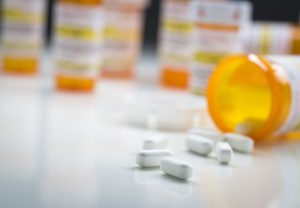
The U.S. Food and Drug Administration (FDA) review and approval process for complex generics would be reformed under a bipartisan bill sponsored on April 4 by U.S. Rep. John Curtis (R-UT).
“I hear frequently from Utahns about the challenges that high out-of-pocket costs create to accessing lifesaving prescription drugs,” Rep. Curtis said. “This bill helps to address this problem. I am proud of this bipartisan effort to speed up the approval process for generic drugs.”
The Modernizing Therapeutic Equivalence Rating Determination Act, H.R. 7377, which is cosponsored by U.S. Rep. Angie Craig (D-MN), would amend the Federal Food, Drug, and Cosmetic Act to modernize therapeutic equivalence rating determinations, according to the text of the bill.
Ultimately, this would increase availability and competition in the market and drive down prescription drug costs, according to Rep. Curtis.
If enacted, H.R. 7377 would require the FDA to assign therapeutic equivalence ratings for 505(b)(2) applications at the applicant’s request, as it does for Abbreviated New Drug Applications, according to a bill summary provided by the congressman’s staff.
The 505(b)(2) approval pathway is used to approve new drugs while leveraging certain data from an already approved drug. Because 505(b)(2) is technically a new drug pathway, the statute does not require the FDA to assign a therapeutic equivalence rating, but sponsors may request it via the citizen petition process, the summary says.
Because this can take significant time, requiring the FDA to assign a therapeutic equivalence rating for 505(b)(2) applications would level the playing field for 505(b)(2) products to compete with name brand drugs, according to the summary.
H.R. 7377 is the companion bill to the same-named S. 1463 introduced in April 2021 by U.S. Sens. Bill Cassidy (R-LA) and Tina Smith (D-MN).



